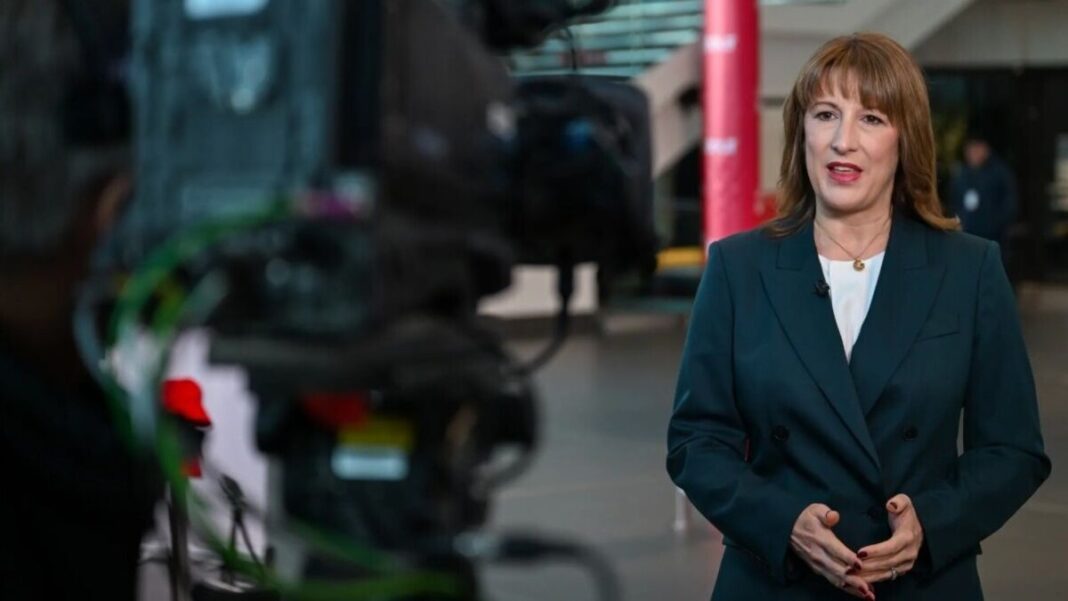Fiscal Discipline and Child Poverty Reduction: Rachel Reeves at the Labour Party Conference
Stepping into Leadership
At the Labour Party’s annual conference in Liverpool, UK Chancellor of the Exchequer Rachel Reeves took center stage, showcasing her commitment to fiscal responsibility paired with an ambitious goal of reducing child poverty. This dual focus reflects a broader strategy rooted in progressive values while addressing pressing economic realities faced by families across the UK.
Commitment to Fiscal Responsibility
Reeves emphasized that fiscal discipline is not merely a numbers game but a crucial part of a sustainable economic strategy. In her dialogue with Bloomberg’s Lizzy Burden, she articulated how maintaining robust government finances is essential for long-term stability. “We must ensure that our financial framework supports growth without burdening future generations,” she stated, underlining her belief that responsible stewardship of public funds is paramount. Such an approach not only reassures the markets but also builds trust among voters who desire accountability from their leaders.
Addressing Child Poverty Head-On
In a heartfelt segment of her address, Reeves passionately addressed the issue of child poverty—a pressing concern that affects millions of families. She shared alarming statistics, illustrating the stark realities that many children face in the UK today. “No child should grow up in poverty; it’s a moral failing of our society,” she remarked. This commitment to lifting families out of financial hardship forms a cornerstone of her policy agenda, driving her economic strategies.
Tax Policies Under Discussion
The conversation swiftly turned to tax policies, a topic both vital and contentious in contemporary political discourse. Reeves reiterated her stance on ensuring that the wealthy contribute fairly to the tax system. She highlighted how a progressive tax framework can provide the necessary funds to invest in crucial social services, including education and healthcare, which are vital for reducing child poverty. “Fair taxation isn’t just an economic necessity; it’s a social imperative,” she argued, framing the discussion in terms of equity and justice.
The Role of Keir Starmer’s Leadership
Reeves also spoke highly of Prime Minister Keir Starmer’s leadership, reinforcing her belief in his vision for the Labour Party. She articulated how Starmer’s approach aligns with her fiscal ideas and social initiatives, emphasizing a unified front aimed at driving the party’s agenda forward. “Keir understands that we need to balance economic growth with social responsibility,” she noted, showcasing her confidence in his ability to lead the party through challenging economic times.
Future Economic Strategies
As the dialogue progressed, it became clear that Reeves is not merely focused on short-term solutions; she is laying down the groundwork for sustainable long-term strategies. She discussed plans to stimulate job creation, particularly in green industries, illustrating how such initiatives can yield both economic benefits and environmental progress. “Investing in a green future is investing in our children’s future,” she proclaimed, highlighting the interconnectedness of these issues.
Engaging with Constituents
The passion in Reeves’ voice was palpable as she talked about the importance of engaging with constituents. She believes that listening to the voices of those affected by economic policy is key to crafting effective solutions. Whether through town hall meetings or community outreach, Reeves is dedicated to ensuring that her policies reflect the real needs of the people she serves.
Building Economic Resilience
Reeves concluded the discussion by hinting at future initiatives aimed at building economic resilience. With an eye on external challenges—such as global market fluctuations and domestic economic pressures—she underscored the importance of adaptability in policy-making. “Our approach must be dynamic and responsive,” she asserted, reinforcing her commitment to a government that not only reacts to changes but anticipates them.
Through these discussions, Rachel Reeves showcased her vision for a balanced, equitable approach to governance—one that prioritizes fiscal responsibility while also providing a clear roadmap to address child poverty. Her passion for public service and her commitment to progressive change were evident throughout her engagement at the conference, demonstrating her role as a key figure in the Labour Party’s present and future.



